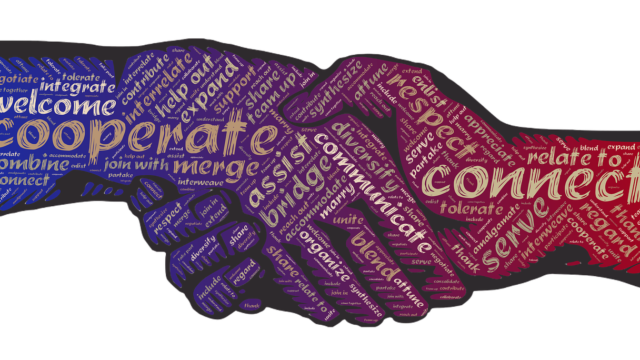One of the cornerstone elements of The BUILD Framework® is “B” — Build Relationships. However, when most people hear the word relationships, we think about people with whom we will have regular, lasting interaction for mutually beneficial purposes. This is certainly a part of relationships. But, every relationship, be it everlasting or simply a brief encounter, is predicated on momentary connections that add up to reflect the sum of the overall relationship. So, if relationships are a foundational component to The BUILD Framework®, connections are the true building blocks of every relationship, no matter how brief. Thus, we truly want to maximize every connection we have to build the best possible relationships and to set a tone that inspires others to do the same. Here are a few tips:
- Engage fully. With any interaction, whether you are checking out at the supermarket, speaking with an employee, or spending time with a loved one, be in the moment. Make sure they know that this opportunity to connect is important to you. Smile; listen attentively; make great eye contact; engage at an appropriate level. When the person with whom you are interacting senses that you are fully engaged, they feel valued and appreciated and will not only reciprocate, enriching the connection, but will likely pass that positivity on to others. It’s amazing how much a momentary positive connection can fuel someone.
- Cater to strengths. Whether it is a personal relationship or a professional relationship, most of the people with whom we interact have strengths and weaknesses. It is very easy to fall into the trap of being critical and constantly trying to correct. If a person’s weaknesses are acceptable, then accept them and focus on their strengths. This means engaging them within their comfort level, assigning them tasks that highlight their strengths, empowering them with the ability to feel success, providing the appropriate level of support and acknowledgement, and not harping on the weaknesses. Allowing someone to succeed within their wheelhouse makes them feel valued and engenders loyalty.
- Keep it positive. It is very easy to go down the rabbit hole of negativity. If your interactions with people often focus on the negative, that is not only the feeling people will associate with you, but it will also cause people to want to avoid you. This is not about putting lipstick on a pig and trying to convince people it’s a beauty queen. It is about understanding what you want to accomplish from any given situation and the best way to achieve it. When you lead with opportunity and positivity, you create opportunity and positivity. “Mike, you stacked all of the boxes wrong.” Or, “Mike, if you stack the boxes this way, it makes it easier and faster for the delivery guys, saving us time and money.” It’s not about delivering a message, it is about what impact you want that message to have and the connection you make with the person when you deliver it.
- Check in. It is very easy to fall into a routine and take the opportunity to make connections for granted. Whether it is with a spouse to whom you have been married for 15 years, a new employee or a vendor with whom your company has been working for decades, every opportunity to connect should be maximized. In addition to engaging fully, you should make a point of checking in regularly, outside the course of our normal routine. Take a vendor to lunch. Ask an employee about their weekend. Participate in chores with your significant other while asking them about their interests. Make a point of fostering connection with others outside the norm of necessity. This will send the important message that you want to connect with them and value them beyond what is routine.
- Avoid drama. This is easier said than done. But a few simple ways to do this include the following: don’t gossip; avoid sharing information that is not positive or reflective of your core values and principles; mind your business; avoid offering unsolicited advice; always seek to diffuse or disengage rather than escalate. You certainly cannot avoid drama landing at your feet on occasion. But you can avoid stepping in it and then passing it on to others. When you set the standard that you are not interested in hearing or engaging in drama, people tend to avoid bringing it to you. When you seek to immediately diffuse drama, you break the chain. When your connections with people are drama-free, they will be more fruitful and enriching.








